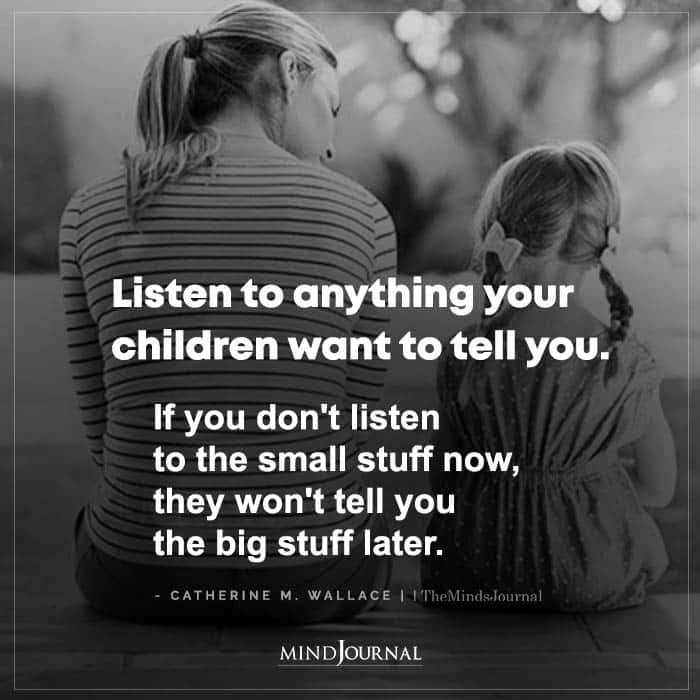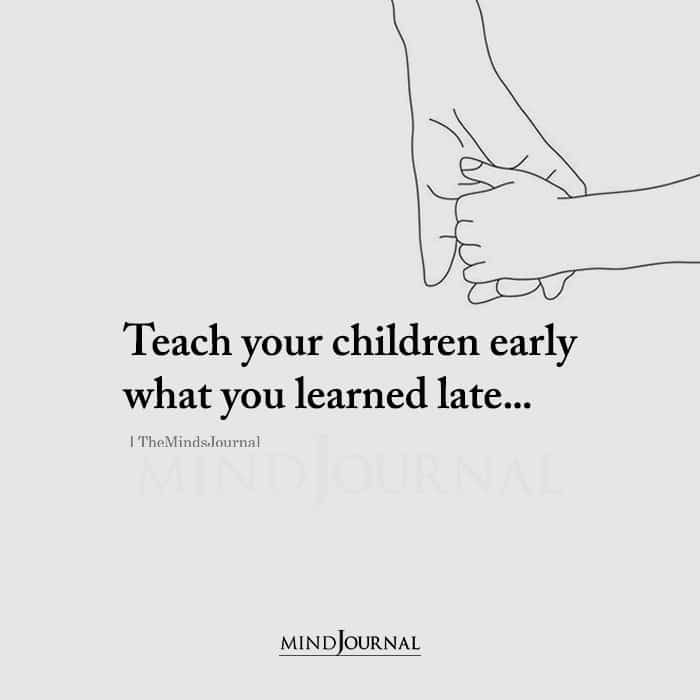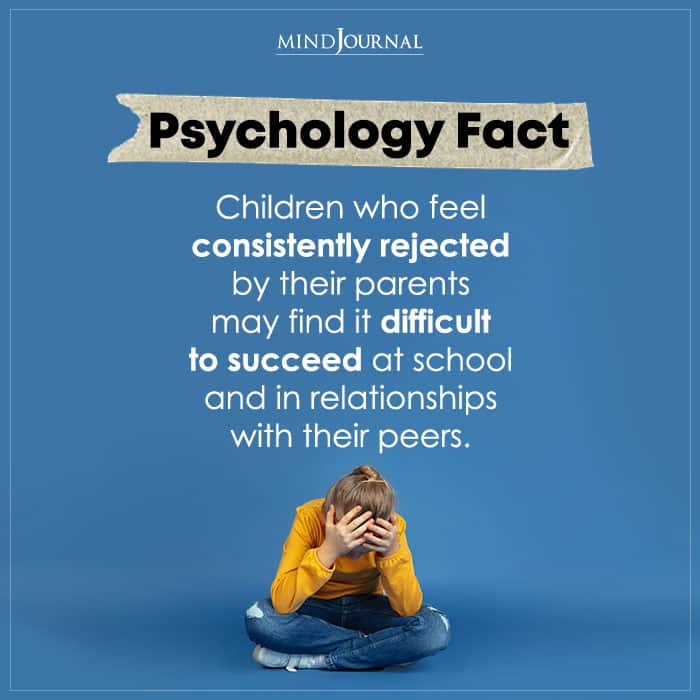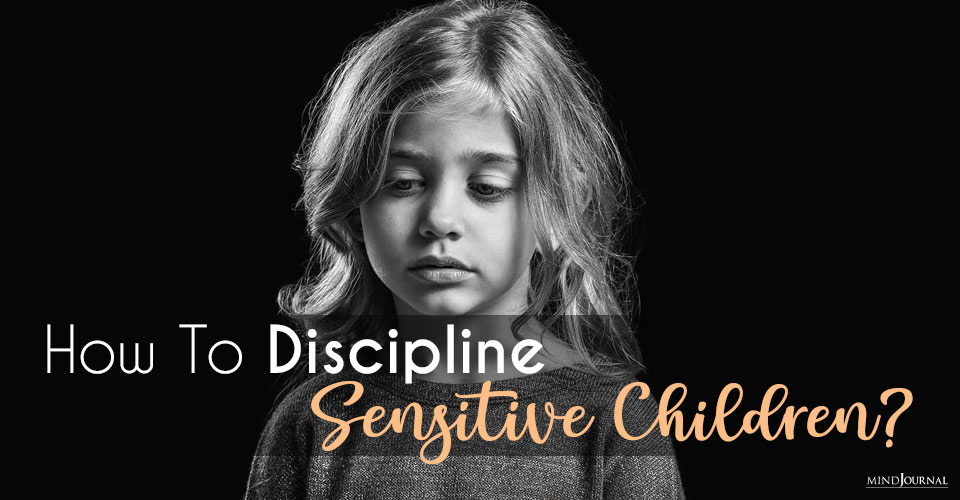Disciplining is challenging for any parent. But when you are disciplining a highly sensitive child (HSC), you need to be especially careful as it can affect their development in the long run. Here are some awesome tips for successfully disciplining sensitive children.
Discipline Sensitive Kids Differently
Do you have a highly sensitive child and have no idea how to discipline them? Children who are sensitive and emotional view the world differently. Discipling them too harshly can often lead to intense consequences that can affect them in their adulthood.
These kids are typically extremely sensitive to their environment and react to everything differently. They may face difficulty coping with loud sounds, strong lights, intense scents, or even certain textures and may feel overwhelmed. They can easily read the emotions and moods of their parents and peers due to their enhanced awareness.
Sensitive kids also tend to have higher cognitive skills, creative skills, emotional intelligence, empathy & compassion. However, they are also easily affected by neglect, criticism, emotional turmoil, and changes. Studies show that sensitive individuals have “greater sensitivity and responsivity to environmental and social stimuli.”
Related: What Make A Good Parent And Child Relationship
Author Maureen Healy explains that sensitive kids require special attention, care, and guidance so that they can be empowered to consider their sensitivity more as a strength than a weakness. Parents should provide HSCs with “tools to tap into the ‘upsides’ of their sensitivity, such as insight, creativity, and empathy, while simultaneously learning how to manage their rich emotional lives.”
But when you, as a parent, discipline your emotional child in an aggressive or critical manner, you can damage their sense of self-worth and self-esteem. The truth is, when you are disciplining a highly sensitive child, you need to take a gentler and positive approach.
It will build the ground for self-discipline throughout their life and allow them to become well-adjusted and happy adults. “Effective and positive discipline teaches and guides children. It doesn’t just force them to obey,” explains a 2004 study.
Understanding A Highly Sensitive Child (HSC)
Although only a small percentage of children appear to be highly sensitive, they are more sensitive and responsive to positive and negative influences in the environment than others. A highly sensitive child has a strong awareness, which makes them think before they act and respond to their environment very differently by detecting sudden and subtle changes.
They behave consistently and responsibly, follow the rules, and are compassionate towards others. However, some sensitive kids can be temperamental, aggressive, moody, demanding, highly emotional, and hyperactive. Some others can be more introverted, reserved, and shy with limited social interaction skills.
According to psychotherapist Dr. Fran Walfish, HSCs can have different personas and temperaments. He explains “One category of the highly sensitive child is emotional, and another is rage. These categories look different and cause different behavior; however, they are all caused by hypersensitivity, thoroughly deep feelings, and quick reactions.”
Related: How to Help Highly Sensitive Kids Manage Intense Emotions: 3 Tips

As emotional and sensitive children are easily overwhelmed, they tend to worry and cry frequently, may seem needy, seek validation and show strong emotions, such as fear, anger, etc. They may also avoid socializing or being in crowded places, have difficulty with new experiences, and become frustrated easily.
Psychotherapist & international bestselling author Amy Morin, LCSW, writes “While strict discipline may help some kids adjust their behavior, harsh punishments are likely to cause more problems with sensitive kids.” This is why when it comes to disciplining a highly sensitive child, you should focus on guiding them and helping them nurture their strength.
Is Your Child Highly Sensitive?
If you are unsure whether your kid is sensitive and emotional or not, here are a few quick signs that can help you identify a highly sensitive child or HSC –
- Inquisitive & intuitive
- Highly perceptive
- Reacts quickly
- Trouble with change
- Strong emotional reactions
- Easily overwhelmed due to sensory overload
- Appearing shy or dramatic
- Dislikes crowds, strong lights, loud noise or other subtle stimuli
- Emotional reaction to criticism, mistreatment & rejection
- Caring, empathic and compassionate
- Preference for playing alone than with others
- Processes experiences deeply
- Hates being startled or surprised
- Takes time to make friends or warm up to new people
If you can observe some or most of these signs in your child, then you need to change your strategy for disciplining them so that you can help them hone their strengths and work on their weaknesses while being a good parent.
Related: Stop Screaming At Your Child
How To Discipline A Highly Sensitive Child
Parents need to take a cautious and measured approach when disciplining any child instead of just reacting to the situation. Research shows that aversive disciplinary strategies, like criticizing, shouting & shaming kids, or even physical punishment “are minimally effective in the short-term and not effective in the long-term.”
This is why when you are dealing with a sensitive kid, you need to be gentle with them. One 2020 study has found that “strategies that constitute a highly sensitive parenting style” work best when raising sensitive & emotional children.
However, as a parent, you should realize that being highly sensitive is not a weakness, disorder, or disability. It is simply a personality trait that makes your child unique.
Here Are A Few Effective Strategies That Can Help You To Discipline Your HSC With Love And Care –
1. Practice acceptance
“Embracing your child as a highly sensitive child is step one,” says author Maureen Healy. According to a 2019 study, parental acceptance or rejection as perceived by children and adolescents can lead to emotional instability.
Hence, it is crucial that you not only become aware and understand the sensitive personality of your child, but you should also accept them unconditionally. As a parent, you should support them in their journey for self-realization and help them understand that their sensitive nature is a positive aspect of themselves.
So if your child seems withdrawn or dramatic, ask them about their thoughts and feelings instead of avoiding them. Acknowledge their emotional needs and pay attention.
Related: 4 Parenting Behaviors That Damage A Child’s Self-Esteem
2. Establish boundaries
It is of utmost importance that you set clear and well-established boundaries when trying to discipline a highly sensitive child. Research shows that parent to parent, parent to child, and child to parent hostility are associated with both parent-child and interparental boundary problems.
This is why you need to set up clear and helpful boundaries based on your child’s age. Common rules to establish for your child may involve –
- Eating their food properly without wasting any
- Bedtime rules must be followed and not negotiated
- Cleaning up their toys and books once done
- Not misbehaving with others
- Not touching or playing with certain items that are off-limits
“Being able to give your child gentle structure and clear limits with respect goes a long way,” adds Maureen. You should also make your child understand that in case they fail to follow these rules, there will be consequences for them.
3. Implement practical consequences
One 2000 study found that physical punishment or aggression from parents is associated with aggressive child behavior in a “cumulative manner,” as aggressive parenting leads to higher severity of problems.
The study explains “children who experienced punitive discipline, spanking, and physical aggression showed a pattern of increasing severity in the problems they displayed.” Hence, when you are planning out the consequences for not following the set boundaries, make sure these are natural and logical.
You should also help your highly sensitive child understand the importance of such consequences. Psychotherapist Amy Morin, LCSW believes that you should not avoid discipline simply because the child is sensitive. \
Instead, you need to focus on logical consequences that teach them crucial life lessons. “Consequences should focus on discipline, rather than punishment. Also, be sure that you are gentle in handing down the consequences,” suggests Amy.
Related: 9 Guiding Principles For More Positive Parenting

4. Appreciate & reward good behavior
Appreciating and praising your child can also be a form of positive discipline. Research shows that positive reinforcement can help with behavior modification when supported with rewards.
When you want your child to exhibit desired behaviors then giving them something they seek, like a new toy or candy, after the behavior occurs can be highly effective. Praising your child’s efforts and rewarding them can motivate a highly sensitive child to put in more effort to improve themselves. It can also help to build their self-esteem.
Moreover, rewarding them and celebrating small achievements can help to build positive memories which will reinforce positive behavior. One 2012 study explains “Positive behavior recognition is especially important to adolescent development because it promotes identity formation as well as cultivates moral reasoning and social perspective thinking from various social systems.”
5. Check how you react
Reacting aggressively or negatively is normal and natural when you are frustrated. But when dealing with a sensitive kid, you need to be aware of your tone. Your behavior should not reflect your child’s behavior, whether they are being dramatic or upset.
You need to realize that your words can seriously affect your child, both emotionally and psychologically. Studies show that harsh parenting, especially from mothers, can adversely affect emotion regulation in children and lead to negative emotions & child aggression.
Research also shows that parenting stress and parental reactions are both “affected by and affects parent and child behavior.”
Hence, it is important that you learn to manage your emotions, practice relaxation techniques, and practice self-love & self-care so that you can respond to your child in a kind, gentle and positive way.
Related: 12 Powerful Parenting Phrases To Discipline Your Kid

Apart from these, there are some other helpful tips and strategies for raising a highly sensitive child that you may apply, such as –
- Exhibit and show the behavior you expect from them through your actions
- Treat your child with respect and request them to follow the rules, instead of demanding it
- Be kind, compassionate and empathetic
- Focus on building their self-confidence and self-esteem, not damaging them
- Provide them some choices or alternatives, if possible
- Strengthen your connection with your child before and after discipline
- Prioritize boundaries and rules
- Be physically comforting and give them gentle pats, cuddles and hugs
- Respect your child’s emotions by understanding their sensitive nature
- Allow them some down time
- If your child is sad or angry, help them calm down
- Spend quality time and engage in fun activities together
- Praise them at every opportunity
- Realize that being sensitive is not a drawback, but a gift
- Be deliberate and mindful in your parenting approach
Things To Avoid
Here are some things that you need to avoid when raising and disciplining a highly sensitive child –
- Avoid shaming or blaming them
- Avoid being rude or yelling at them
- Avoid constant criticism or insults
- Avoid physical punishment
- Avoid forcing them to do things
- Avoid isolating or neglecting them
- Avoid withdrawing love, care and warmth
- Avoid teasing them
- Avoid being permissive
Related: Permissive Parenting Style: Why It’s Bad For You and Your Child?
However, you should under no circumstances avoid disciplining them out of concern or fear of hurting their emotional and mental wellbeing. A 2004 study states “Discipline is about changing behavior, not about punishing children. Discipline allows children to develop self-discipline, and helps them become emotionally and socially mature adults.”
Instead of being punitive, take a more positive and kinder approach that will help them learn lessons while building the bond you share with them.
Discipline Is About Guidance, Not Punishment
When you’re dealing with a highly sensitive child, your parenting knowledge, attitudes, and practices can directly impact your child’s development & your interactions with them. When you discipline your child effectively, they learn to internalize rules, develop desired behavior patterns and become more organized.
It also helps to build trust and respect between you and your sensitive child. When you are cautious about their sensitive nature and apply the strategies mentioned above, you can empower them to successfully fit into their environment and become emotionally mature adults.
Related: Conscious Parenting: The Art Of Raising Happy Children












Leave a Reply